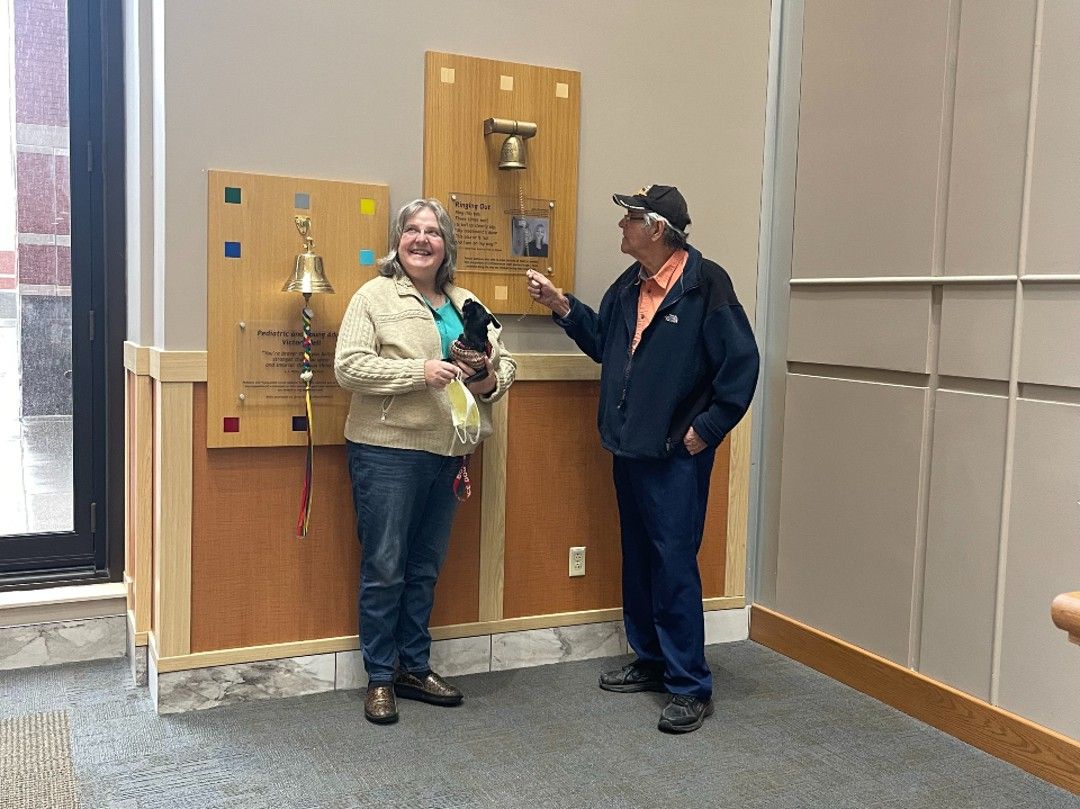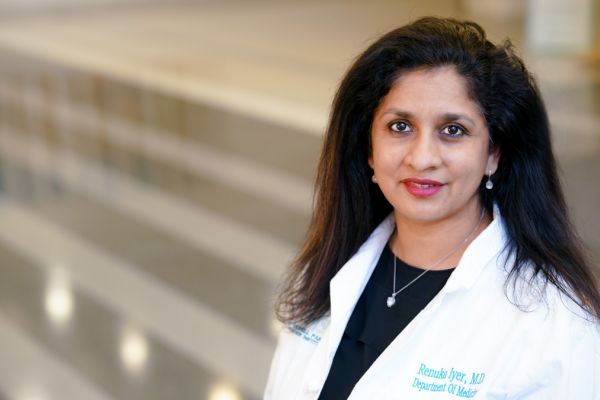Chuck Schliecher has hepatitis C to thank for being a liver cancer survivor.
He had chronic hepatitis C for a number of years before a new treatment was developed that cured him of the condition. Within a few months, he was effectively cured of the hepatitis, but to make sure it had not caused any tumors to develop because of chronic inflammation, he was instructed to have a CT scan performed every few months to check for lesions.
In early 2018, during one of these routine check-up scans, the two technicians reading his scan couldn’t agree on what they were seeing. His specialist suggested he meet with experts at Roswell Park Comprehensive Cancer Center to get a better sense of what was going on.
“The doctor was quite good,” Chuck says. But the news wasn’t: he was immediately diagnosed with stage 1 liver cancer, with surgery scheduled for a few weeks later. Luann Schliecher, Chuck’s wife, recalls the doctor being “almost giddy” with the diagnosis, because most people with liver cancer are asymptomatic, meaning they don’t know they have cancer until much later in their disease and therefore have fewer treatment options available.
After portions of two lobes of Chuck’s liver were removed, and following a slightly prolonged stay at Roswell Park, Chuck and Luann went home and resumed a regular series of liver scans, every three months, to make sure his liver remained as healthy as possible.
A promising clinical trial
In late 2021, however, one of those routine scans picked up another growth on Chuck’s liver. The cancer had returned, this time slightly larger, but it was too difficult for a simple surgery to try and remove them. Fortunately, Chuck was a nearly ideal candidate for a new clinical trial that combined radiation seeds and immunotherapy to treat his liver cancer.
“The field of liver cancer has seen a lot of exciting developments with the use of immunotherapy and antiangiogenic therapy. That has yielded great responses that have lasted a long time and, in some instances, cures, which was very unusual for liver cancer up until a couple of years ago,” says Renuka Iyer, MD, formerly of Roswell Park. “But, for patients like Charles, whose disease is not able to be removed surgically and has recurred, we try to avoid being on immunotherapy and antiangiogenic therapy lifelong, and instead opt for something more directed at his liver when we can, like radiation seeds which is rarely a cure.” Chuck's cancer needed a different treatment approach — this clinical trial offered one.
For his cancer, the combination treatment of radiation seeds inserted into his liver near the tumors, in addition to immunotherapy and antiangiogenic therapy, was a resounding success: After just one treatment, his tumor shrank 33%.
“Radiation seeds usually don’t cure patients,” Dr. Iyer says. “Between 25 and 50% of patients get a response, but it’s rare to get a cure. We were able to include him in this trial and, within six months of treatment, he had a complete response and no visible disease. That is remarkable, very exciting and promising. We will be presenting our early findings at a conference in January and Charles is the star of the study. He’s the first patient to have a complete response and in a very short amount of a time.”
Why Roswell Park for liver cancer treatment?
In addition to the integrative, multidisciplinary cancer care Roswell Park provides, we are also designated by the National Cancer Institute as one of the nation’s elite cancer centers. Learn more about what sets us apart.
A leap of faith
Chuck and Luann say they didn’t hesitate at all to participate in the study. They believe in taking the opportunities presented to them and they have a strong shared sense of faith that everything happens for a reason.
“We’re devout Christians and we prayed about it,” Luann says of the trial. “We just believed this is what we were supposed to do. We believe Roswell Park was there at the right time. If it weren’t for his hepatitis, we might’ve missed the cancer. It might’ve been stage 4 by the time we got around to realizing he was sick.”
Chuck still goes for his routine liver scans every few months, but he was able to ring the Victory Bell – with Luann and their service dog, Duchess, by his side – to celebrate the end of his treatment in October.
He’s glad that his participation in the trial might be helpful for others like him — and so is Dr. Iyer.
“This could become the standard treatment for liver cancer in the future,” she says. “The message to people is to come and be part of clinical trials like this one. If you have liver cancer, come to an organization like Roswell Park where we have trials available. People who have participated in a trial benefit from treatments years before the results come out and it becomes a standard option. If you want to get tomorrow’s treatment today, be part of a clinical trial. Patients like this give us doctors a lot of hope. Treating cancers that have historically poor outcomes can take a toll on doctors too. We want to have some of these stories to lift our spirits. We like to have a few Charles in our midst.”
Editor’s Note: Cancer patient outcomes and experiences may vary, even for those with the same type of cancer. An individual patient’s story should not be used as a prediction of how another patient will respond to treatment. Roswell Park is transparent about the survival rates of our patients as compared to national standards, and provides this information, when available, within the cancer type sections of this website.

